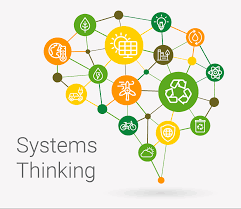About Course
Welcome to Systems Thinking for Mental Health course. This course introduces you the basics of system thinking approach and develop new ways of thinking about and approaching mental health situations that cross multiple discipline and skills boundaries. The course covers the theory, rationale, tools, and techniques associated with systems thinking and help participants in determining the interconnections between the various components of a system into a coherent perspective of the whole.
Course objective(s)
By the end of the course, participants are able to understand the following objectives
- Understand and discuss what systematic thinking is and systematic approaches to understanding and working with complex mental health situations
- Define complex adaptive systems
- Explain how and why different systems can be defined and described within complex mental health situations
- Learn different techniques and approaches in systems thinking to professional practice when working with complex situations
- understand and discuss the properties of systems
- Plot the cause-and-effect relationship of issues and decisions associated with them
- Apply a number of systems tools and approaches to assess complicated situations and to address problems and opportunities
Course contents
- Systems Thinking: what, why, when, where, and how?
- Systems Thinking Methods
- System Dynamic Modeling
- Causal Loop Diagrams
- Organizational Cybernetics
- Complexity Theory
- How to evaluate Complex Interventions
Course objective(s)
By the end of the course, participants are able to understand the following objectives
- Understand and discuss what systematic thinking is and systematic approaches to understanding and working with complex mental health situations
- Define complex adaptive systems
- Explain how and why different systems can be defined and described within complex mental health situations
- Learn different techniques and approaches in systems thinking to professional practice when working with complex situations
- understand and discuss the properties of systems
- Plot the cause-and-effect relationship of issues and decisions associated with them
- Apply a number of systems tools and approaches to assess complicated situations and to address problems and opportunities
Course contents
- Systems Thinking: what, why, when, where, and how?
- Systems Thinking Methods
- System Dynamic Modeling
- Causal Loop Diagrams
- Organizational Cybernetics
- Complexity Theory
- How to evaluate Complex Interventions
